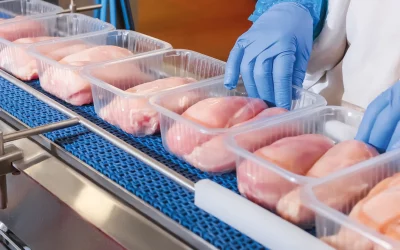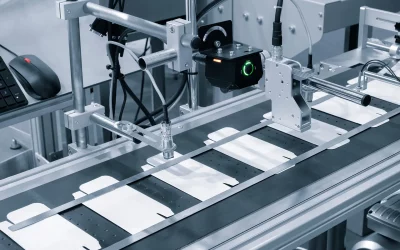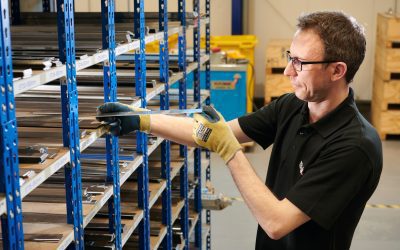Why you should make your packaging more sustainable
Sustainability is a word that gets thrown around a great deal these days. So it can be tempting to dismiss it as a meaningless buzzword.
However, there are two good reasons to take sustainable packaging seriously…
Consumer expectations
First of all, consumers are becoming much more conscious of the impact of packaging on the environment.
When it comes to things like plastic, consumers are far more educated on the impact of this material than in days gone by. According to research from packaging consultancy Trivium, nearly half of consumers won’t buy products that are packaged in materials that are harmful to the environment.
What’s more, around three-quarters of consumers will pay more for sustainable packaging.
Sustainable packaging is no longer a niche interest; it’s very much gone mainstream, so you can’t afford to ignore it.
Regulations
Governments across the world are passing legislation mandating more sustainable packaging practices. It’s a development which seems to be accelerating too.
In Australia, the Government has stipulated that 100% of packaging is to be recyclable, compostable or reusable by 2025.
The UK Government has banned single-use plastic straws, cotton buds and drink stirrers, and is on track to mandate further sustainability requirements for packaging.
These are just two examples of regulatory efforts across the world to make packaging more sustainable.
With both governments and consumers expecting packaging to become more sustainable, making your own packaging more sustainable really should be near the top of your agenda.
The top packaging sustainability trends
There is a world of efforts underway to make packaging more sustainable, however, some are more pertinent and timely than others. Below, we’ve set out the key trends you need to know about in 2021 and 2022.
Less is more
‘Minimalism’ is becoming a watchword amongst conscious consumers. Look on YouTube and other social media platforms and you’ll find many videos of consumers shaming brands that use excessive amounts of packaging.
Not only does the use of less packaging satisfy these sorts of consumer demands, but it can also save manufacturers significant amounts of money – provided it’s done right. Yes, use less packaging, but not at the detriment of product integrity.
Reusable packaging
For decades, reusable packaging has been a common part of the business to business world.
Whether it’s crates, barrels, pallets or drums, businesses are accustomed to reusing packaging.
Now the business-to-consumer world is beginning to take notice of reusable packaging. A growing number of food and beverage brands are using returnable containers and cutlery to reduce their environmental impact.
CupClub, Globelet, ReCup and CupKita are just a few of the food and beverage brands that are truly taking reusable packaging to heart.
Expect to see more talk of reusable packaging as we go into 2022.
Combining barrier functionality with paper
Paper is a popular packaging option for many companies. However, there are many more companies that haven’t been able to utilise this environmentally-friendly packaging option.
Why? Because for use cases such as high-fat content products (where grease leakage would render the paper packaging ineffective), manufacturers have had to use less environmentally-friendly materials such as plastic.
However, a new trend is changing this; the introduction of paper packaging that is infused with the functional barrier properties of plastic.
The result is that products previously limited to plastic packaging, can now make use of a far more eco-friendly packaging material.
Recycle-ready retort packaging
Traditionally retort pouches had to be made from a mix of non-recyclable materials (because of the temperatures and conditions they have to withstand). This was less than ideal from a sustainability perspective.
However, a new more sustainable solution is here. US-based packaging company ProAmpac has developed the ProActive Recycle Ready Retort RT-3000. This newly-patented packaging option makes use of a mono-material, which is a far more sustainable option than the mixed non-recyclable materials of old.
This recycle-ready retort packaging is due to be released to the market later this year, which is bound to trigger further innovations in the retort packaging space.
Antimicrobial packaging
Consumers and major food retailers alike are increasingly determined to reduce food waste. In response, we’ve seen the rise of antimicrobial packaging.
This type of packaging reduces microbial and ripening activities on food, thereby keeping it fresh for much longer periods.
Whilst this is certainly a positive trend, the production of antimicrobial packaging can be expensive and often involves significant design changes to the packaging process.
Edible films
This is very much an emerging trend, but one that is nevertheless being embraced by consumers.
Following years of development, edible films are now commercially available. One such example is chitosan, which is a polysaccharide that features natural antimicrobial properties.
Not only is chitosan edible (and therefore inherently less wasteful than other types of waste), but it is also able to inhibit the respiratory activity of bacteria by blocking the oxygen supply in packaging.
Expect to see edible packaging being used in more and more applications beyond fruits and vegetables. One particular use case which is being discussed amongst food scientists is in takeaway packaging.
Bioplastics
Bioplastics have been around for years, but it’s only in recent times that the use of bioplastics has exploded.
In particular, producers are excited about bio-based PET (Polyethylene terephthalate), which has an elastic texture with strong fibres which means it can easily replace other packaging materials for containers, bottles and films.
Post-consumer recycled resin
An increasing number of brands are setting targets for the amount of post-consumer recycled resin in their packaging.
What is post-consumer recycled (PCR) resin? It’s simply recycled plastic that is used for making packaging such as sheets, bottles, and other basic containers.
Brands across the retail, electronics, pharma and medical industries are all increasingly making use of PCR resin. Again, this is another trend which feeds into the desire amongst brands to appear more sustainable in the eyes of an increasingly eco-focused public.
Compostable and plantable packaging
Allowing consumers to be able to throw their old packaging on their compost heaps is something that many brands want to offer.
As such, we are seeing more and more brands actively promoting the fact that their packaging can be composted. A number of brands are even going so far as to include seeds within the packaging, meaning that people can ‘plant’ their old packaging directly in their gardens.
Typically, this type of packaging is lightweight and only really suitable for holding things such as takeaway food.
Digitalisation
Finally, packaging is becoming ‘digitised’. We are seeing the emergence of packaging that features codes, smart tags and even RFID labels.
How does this help sustainability?
Primarily because the use of smart labels provides retailers with a much more accurate way of tracking their inventory and thus reduces wastage. Retailers are able to collect much more granular data on their inventory and make more informed decisions about future stocking levels etc.
Become more sustainable with MRMK
As you can see, there’s an increasing focus on making packaging more sustainable, with consumers and governments alike demanding action.
However, if you really want to become a leader in sustainability then you need to consider the impact of every aspect of your operations – including your machinery.
With MRMK you can make your machinery far more sustainable and less environmentally negative by using our long-lasting, high-quality packaging machine blades. They operate smoothly and consistently over hundreds of thousands of cycles, meaning you’ll be replacing them far less than OEM blades.
Start making your production more sustainable with MRMK today.
Speak to MRMK today and make your machinery more sustainable
Find out more about custom industrial machine knives and how they can benefit your business on the MRMK news and insights hub…
What Are the Different Types of Packaging Machine Knives? | A Complete Guide to Industrial Blades and Choosing the Right Steel Grade | A Complete Guide to Vertical Form Fill Seal Knives


 +44 (0) 1909 519815
+44 (0) 1909 519815 


